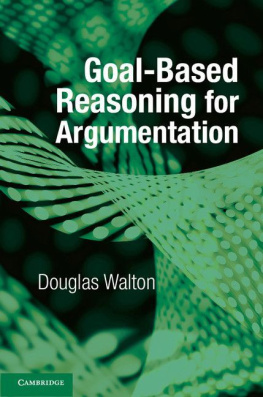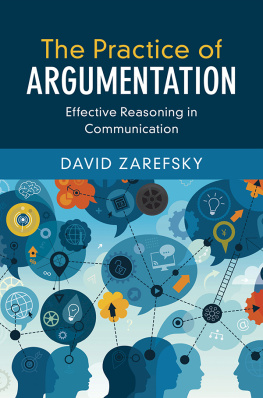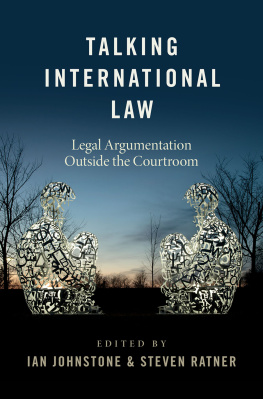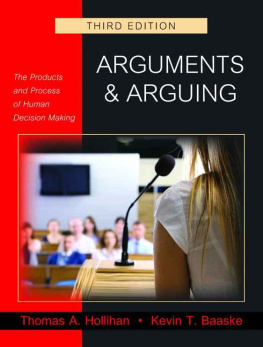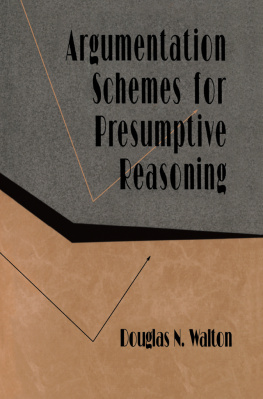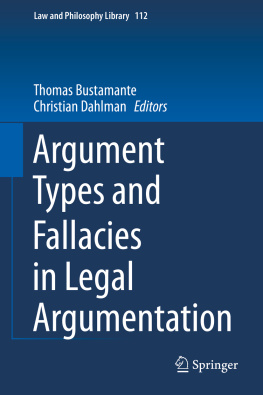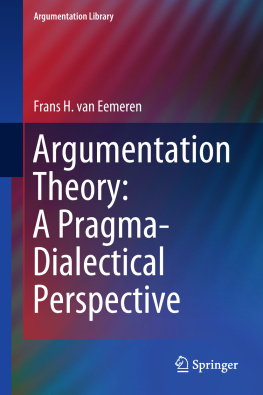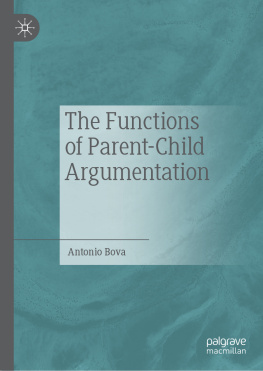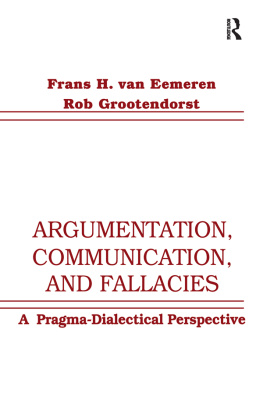Methods of Argumentation
Argumentation, which can be abstractly defined as the interaction of different arguments for and against some conclusion, is an important skill to learn for everyday life, law, science, politics and business. The best way to learn it is to try it out on real instances of arguments found in everyday conversational exchanges and legal argumentation. The introductory chapter of this book gives a clear general idea of what the methods of argumentation are and how they work as tools that can be used to analyze arguments. Each subsequent chapter then applies these methods to a leading problem of argumentation. Today the field of computing has embraced argumentation as a paradigm for research in artificial intelligence and multi-agent systems. Another purpose of this book is to present and refine tools and techniques from computing as components of the methods that can be handily used by scholars in other fields.
Douglas Walton currently holds the Assumption Chair in Argumentation Studies and is Distinguished Research Fellow of the Centre for Research in Reasoning, Argumentation and Rhetoric at the University of Windsor, Canada. His most recent book is Argumentation Schemes , coauthored with Chris Reed and Fabrizio Macagno (Cambridge University Press, 2008). Waltons work has been used to better prepare legal arguments and to help develop artificial intelligence. His books have been translated worldwide, and he attracts students from many countries to study with him.
Methods of Argumentation
Douglas Walton
University of Windsor, Canada
32 Avenue of the Americas, New York, NY 10013-2473, USA
Cambridge University Press is part of the University of Cambridge.
It furthers the Universitys mission by disseminating knowledge in the pursuit of education, learning and research at the highest international levels of excellence.
www.cambridge.org
Information on this title: www.cambridge.org/9781107677333
Douglas Walton 2013
This publication is in copyright. Subject to statutory exception and to the provisions of relevant collective licensing agreements, no reproduction of any part may take place without the written permission of Cambridge University Press.
First published 2013
Printed in the United States of America
A catalog record for this publication is available from the British Library.
Library of Congress Cataloging in Publication data
Walton, Douglas N.
Methods of argumentation / Douglas Walton, University of Windsor, Canada.
pages cm
Includes bibliographical references and index.
ISBN 978-1-107-03930-8 (hardback) ISBN 978-1-107-67733-3 (paperback)
1. Reasoning. I. Title.
BC177.W3247 2013
168dc23 2013015608
ISBN 978-1-107-03930-8 Hardback
ISBN 978-1-107-67733-3 Paperback
Cambridge University Press has no responsibility for the persistence or accuracy of URLs for external or third-party Internet Web sites referred to in this publication and does not guarantee that any content on such Web sites is, or will remain, accurate or appropriate.
For Karen, with love
Contents
Acknowledgments
I would like to acknowledge support for the work in this book from Social Sciences and Humanities Research Council of Canada Insight Grant 435-2012-0104. For comments received when material in some chapters of the book was presented at meetings of the Centre for Research in Reasoning, Argumentation and Rhetoric, I would like to thank J. Anthony Blair, Marcello Guarini, Hans V. Hansen, Catherine Hundelby, Ralph Johnson, Robert C. Pinto and Christopher W. Tindale. I would also like to thank Floris Bex, Thomas F. Gordon, Fabrizio Macagno and Henry Prakken for discussions that helped to refine formulations of my views in some chapters and correct some errors in them. An earlier version of was read to the Department of Theoretical Philosophy at the University of Groningen on September 29, 2011. I would like to thank the following participants for comments and discussions: Barteld Kooi, Erik Krabbe, Henry Prakken, Allard Tamminga, Jan Albert van Laar, Rineke Verbrugge, Bart Verheij and Jean Wagemans.
Five of the chapters of this book are based on papers previously published in refereed journals. These five papers have been substantially revised, updated and edited. The editing work has included the addition of new material to these chapters, as well as deletion of some material and distribution of other material between one chapter and another. Permission to reprint each of them has been obtained from the copyright owner. paper Defeasible Reasoning and Informal Fallacies, originally published in Synthese , 179(3), 2011, 377407. For help with indexing, proofreading and improving some of the figures, I would like to thank (respectively) Rita Campbell, Lynn Fraser and Mike Busuttil.
D.W.
Introducing Some Basic Concepts and Tools
Argumentation, which can be abstractly defined as the interaction of different arguments for and against some conclusion, is an important skill to learn for everyday life, law, science, politics and business. It is a rich, interdisciplinary area of research straddling philosophy, communication studies, linguistics, psychology and artificial intelligence that has developed context-sensitive practical methods to help a user identify, analyze and evaluate arguments.
Recently, the field of computing has embraced argumentation as a paradigm for research in artificial intelligence and multi-agent systems. Artificial intelligence in particular has seen a prolific growth in uses of argumentation. Argumentation has proved helpful to computing because it has provided concepts and methods used to build software tools for designing, implementing and analyzing sophisticated forms of reasoning and interaction among rational agents (Reed and Grasso, ). Recent successes include argumentation-based models of evidential relations and legal processes of examination and evaluation of evidence. Argument mapping has proved to be a useful tool for designing better products and services and for improving the quality of communication in social media by making deliberation dialogues more efficient. There now exist formal systems of argumentation to model many aspects of reasoning and argument that were formerly studied only by less structured methods of informal logic.
Now there has been the starting of a feedback loop. The formal argumentation methods and concepts that were developed in artificial intelligence are themselves being used to refine informal argumentation methods. In the past the argumentation methods have come from the humanities and social sciences. Now the tools that have been developed to model the features and problems of argumentation in natural language discourse, and other special contexts such as legal reasoning, are computationally precise. One benefit of this reverse transfer to and from computer science has been the refinement of argumentation theory itself through mathematically precise modeling of its core concepts and methods. The purpose of this book is to present and refine these tools from computing to help build a better set of methods that can be used by all argumentation scholars. This project is carried forward by showing how the new methods can already be applied with some success to some of the leading problems of argumentation.


